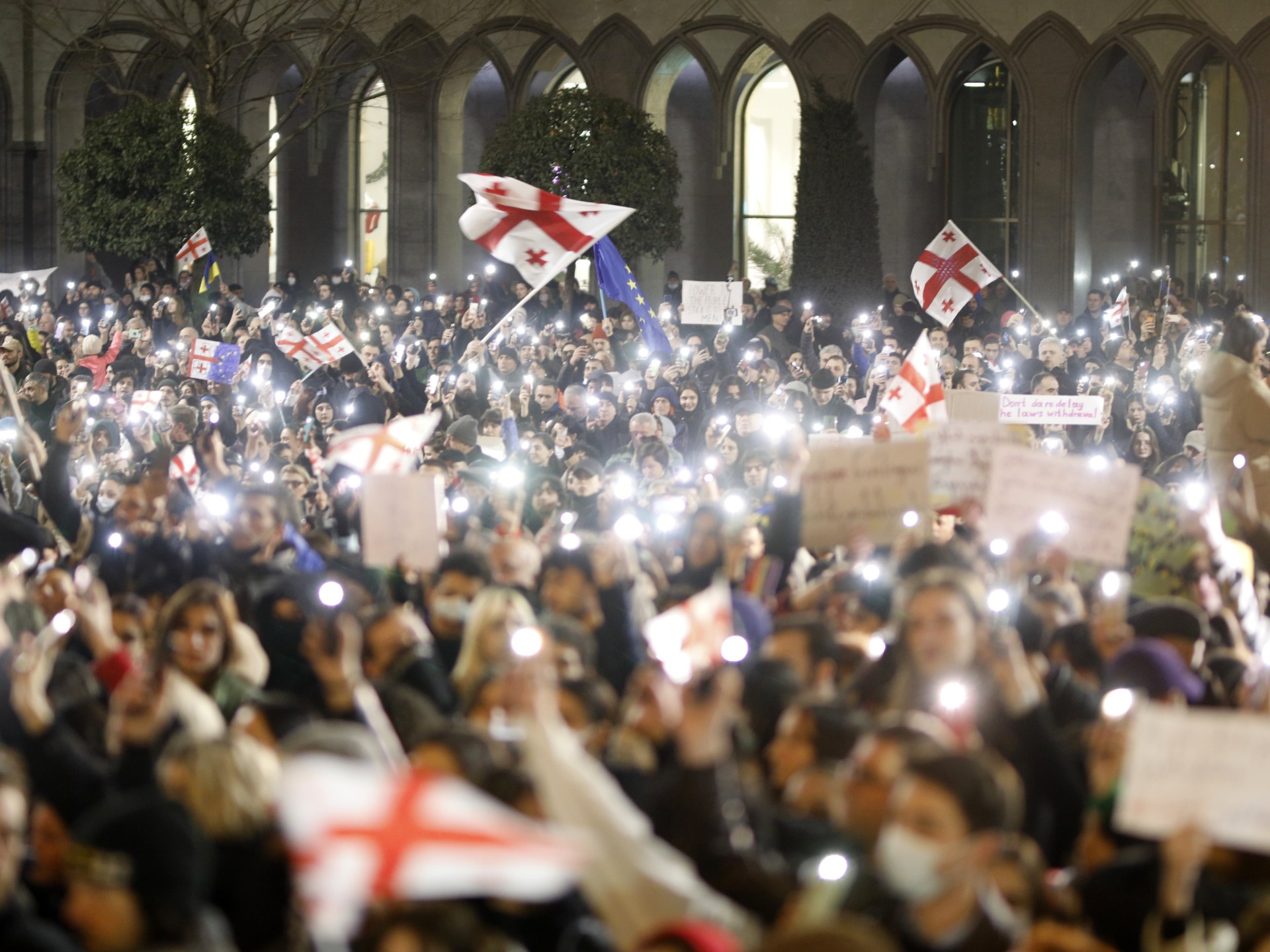Tens of thousands of Georgians demonstrated Thursday evening in the capital, Tbilisi, after two days of protests and clashes with the police, to denounce the foreign agents bill, despite the government's retraction of it.
The Interior Ministry announced the "release" of demonstrators arrested since last Tuesday in response to one of the opposition's demands, and added in a statement that "investigations are under way to identify and arrest those who attacked the police."
Among the crowd gathered in the center of Tbilisi, many waved the flags of Georgia, Ukraine and the European Union, and many of the protesters who gathered in the center of Tbilisi condemned the government's policy.
The demonstrations came at the invitation of several opposition parties, despite the ruling "Georgian Dream" party announcing earlier Thursday the withdrawal of a draft law that its critics considered oppressive.
The demonstrators accuse the Georgian government of wanting to pass legislation inspired by the Russian model that classifies non-governmental organizations and the media that receive more than 20% of their funding from abroad as a "foreign agent".
The former Soviet republic, with a population of 4 million, has been witnessing a political crisis for years as a result of its attraction between Europe and Russia, and Moscow and Tbilisi faced each other in 2008 in a short war in which the Russian army won.
The Russian presidency on Thursday expressed its "concern" about the events taking place in neighboring Georgia, denying at the same time any connection to the draft law.
For its part, the European Union Delegation to Georgia welcomed the announcement of the withdrawal of the bill, and said via Twitter, "We encourage all political leaders in Georgia to resume pro-European reforms in a comprehensive and constructive manner."
In its statement, the "Georgian Dream" party considered that the bill had been "interpreted negatively and in a misleading way," indicating that it would initiate public consultations to "better explain" the purpose of this text.
Tbilisi aspires to officially join the European Union and NATO, a trend taken after the "Rose Revolution" in 2003 that brought to power Mikhail Saakashvili, a pro-Western dissident who became imprisoned.

